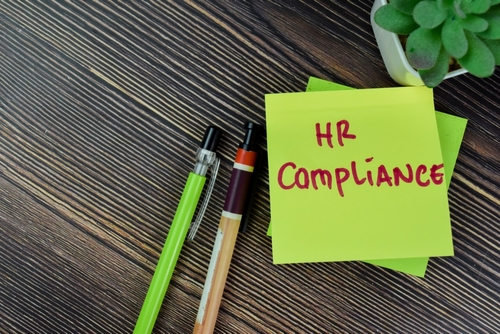The HR department is critical in ensuring companies comply with employment laws and regulations while maintaining employee confidentiality. Failure to maintain compliance and privacy can have great legal and financial repercussions for the company. Therefore, HR departments need to implement measures that ensure compliance and confidentiality. Here we will discuss compliance and privacy in the HR department, how to maintain them, and what else to keep in mind to ensure that the company avoids legal and financial risks.
Understand HR Compliance
HR compliance ensures the company adheres to all applicable employment laws, regulations, and policies. This includes compliance with federal, state, and local regulations, such as anti-discrimination, minimum wage, and labor laws. Failure to comply with these laws can lead to legal consequences, including fines and lawsuits. HR departments must know these regulations and have policies and procedures to ensure compliance. Additionally, HR compliance involves staying up to date with any regulation changes and modifying policies and procedures accordingly. Understanding HR compliance is critical for HR departments to avoid legal risks and maintain a safe work environment for employees.
Keep Sensitive Data Confidential
The HR department manages sensitive employee information, such as personal information, medical records, and salary details. It is crucial to keep this information confidential to protect employees’ privacy and prevent legal issues. Confidentiality can be maintained by implementing secure data storage systems, restricting access to the data, and ensuring that employees are aware of their confidentiality obligations. Additionally, HR departments must have policies and procedures to ensure that sensitive data is only shared with authorized personnel. Maintaining confidentiality is essential for creating trust and maintaining a positive work environment.
Leverage Technology
Technology can be a valuable tool in maintaining compliance and confidentiality in the HR department. For example, artificial intelligence (AI) can be used to automate compliance checks and identify potential violations. Private online chats and communication channels can also ensure that sensitive information is shared only with authorized personnel. HR departments can use Technology to manage employee data and track compliance, reducing the risk of errors and omissions. However, it is essential to ensure that any technology is secure and that employees are trained on its proper use to prevent data breaches or other issues.
Train Employees
Employees are critical in maintaining compliance and confidentiality in the HR department. Therefore, training them on the importance of compliance and privacy and providing them with the necessary knowledge and skills to ensure that they adhere to company policies and procedures is essential. Training can cover data privacy laws, anti-discrimination policies, and violation reporting procedures. Regular refresher and training courses can help employees stay up to date with changes in regulations and reinforce the importance of compliance and confidentiality. Furthermore, employees who understand the importance of compliance and privacy are more likely to take responsibility for maintaining it, creating a workplace culture of compliance and privacy.
Review and Update Policies
HR policies and procedures must be reviewed and updated regularly to comply with changing laws and regulations. Regular review and updates can also help identify potential areas of non-compliance and mitigate risk. Policies and procedures should be clear and easy to understand, outlining expectations for employee behavior and how to handle sensitive information. HR departments should involve legal counsel to ensure processes and policies comply with all applicable laws and regulations. Additionally, HR departments should regularly communicate any updates to policies and procedures to employees, ensuring that they understand their obligations and responsibilities.
Maintaining compliance and confidentiality in the HR department is essential for any company to avoid legal and financial risks while creating a positive work environment for employees. This can be achieved through understanding HR compliance, keeping sensitive data confidential, leveraging Technology, training employees, and regularly reviewing and upgrading policies and procedures. By implementing these measures, HR departments can create a culture of compliance and confidentiality, reducing the risk of violations and creating trust between employees and the company. Additionally, HR departments should involve legal counsel and stay up to date with regulation changes to ensure ongoing compliance.
Taylor McKnight is an Author for Apex Chat.
The post How to Maintain Compliance and Confidentiality in HR appeared first on HR Daily Advisor.
